Wishing you happy holidays and a wonderful new year!

As we reach the end of 2022, we are delighted to celebrate the progress the Diversity Institute (DI) team, partners and supporters have made in advancing equity, diversity and inclusion across the country this year.
We have published cutting-edge research, developed innovative resources, and hosted and participated in engaging programming that advance our understanding of the systemic barriers facing equity-deserving groups in Canada, and provide insight into how to address them. This includes more than 20 reports, the Diversity Assessment Toolkit (external link) , the Micropedia of Microaggressions (external link) , more than 500 best practices and training programs, and over 130 events.
We’ve collected a few highlights from the past year below that you don’t want to miss.
Diversity & Inclusion Research

As an ecosystem partner in the Government of Canada’s 50 – 30 Challenge (external link) since December 2021, DI develops resources to support organizations that have taken the pledge to reach gender parity (50%) and more representation of equity-deserving groups (30%) in senior leadership positions. This builds on DI’s DiversityLeads research and insights we have published on the experience of workers and the employment ecosystem. As of mid-December 2022, more than 1,800 organizations have signed up with an aspirational commitment to increase diversity on Boards and in senior management, and to report on their progress
In September 2022, DI launched the What Works Toolkit (external link) online. The Toolkit provides best practices and actionable strategies to business owners, leaders and individuals for the recruitment, mentoring, promotion and retention of diverse staff.
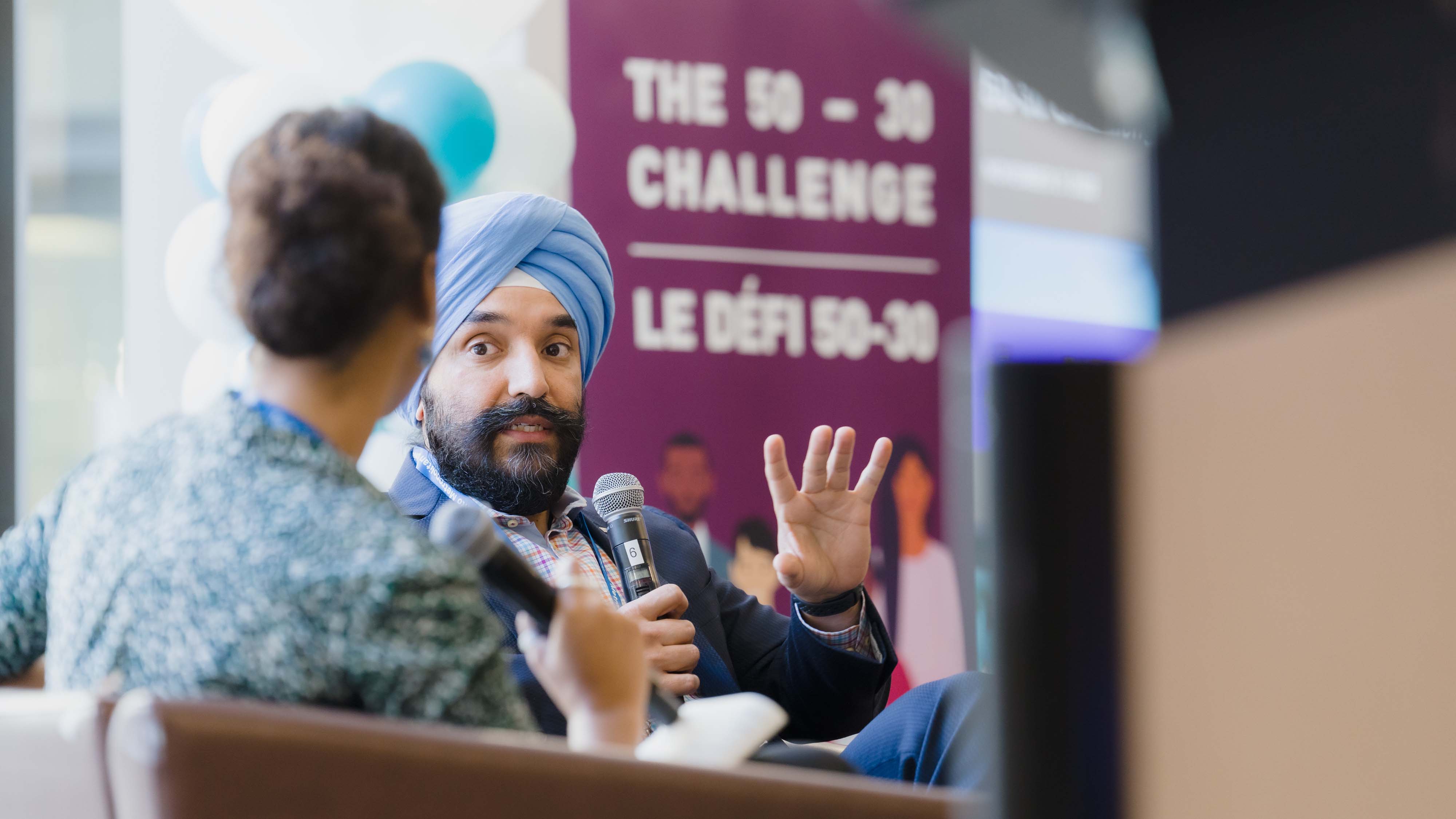
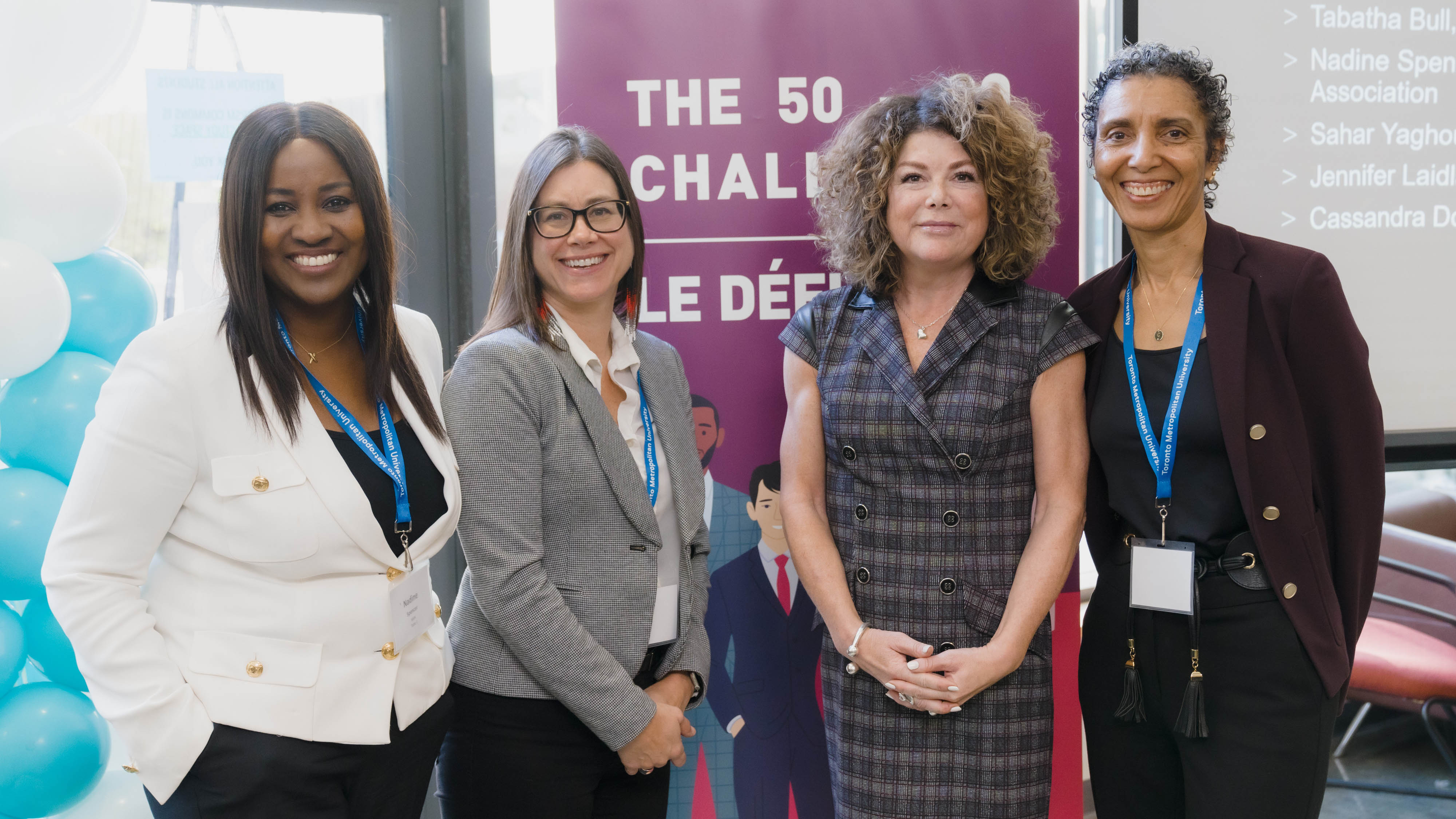
One of the year’s highlights was the DiversityLeads 50 – 30 Challenge Day for staff, partners and business leaders to learn more about the Challenge and how to make it a reality. Hosted by DI in November, highlights included a fireside chat with Navdeep Bains, who shared some of his personal experiences behind launching the 50 – 30 Challenge as then-minister of innovation science and industry, and a powerhouse panel of leaders in the entrepreneurship ecosystem.
Must-Read Material

Experiences of Discrimination at Work
Discrimination in the workplace has been a prevalent issue in Canada, and DI research shows it’s not getting better. Published in June 2022, the Environics Institute’s 2021 survey on race relations found that, since the onset of the COVID-19 pandemic, there has been an increase in the perception of unequal treatment in employment settings for employees who are women, racialized, Indigenous, youth or who have a disability.
This report aims to fill this gap in research and shed light on workplace discrimination during and as a result of the pandemic.
It finds, for example, that two in five racialized employees experience race-based discrimination in the workplace. This increases to one in two for Black employees.
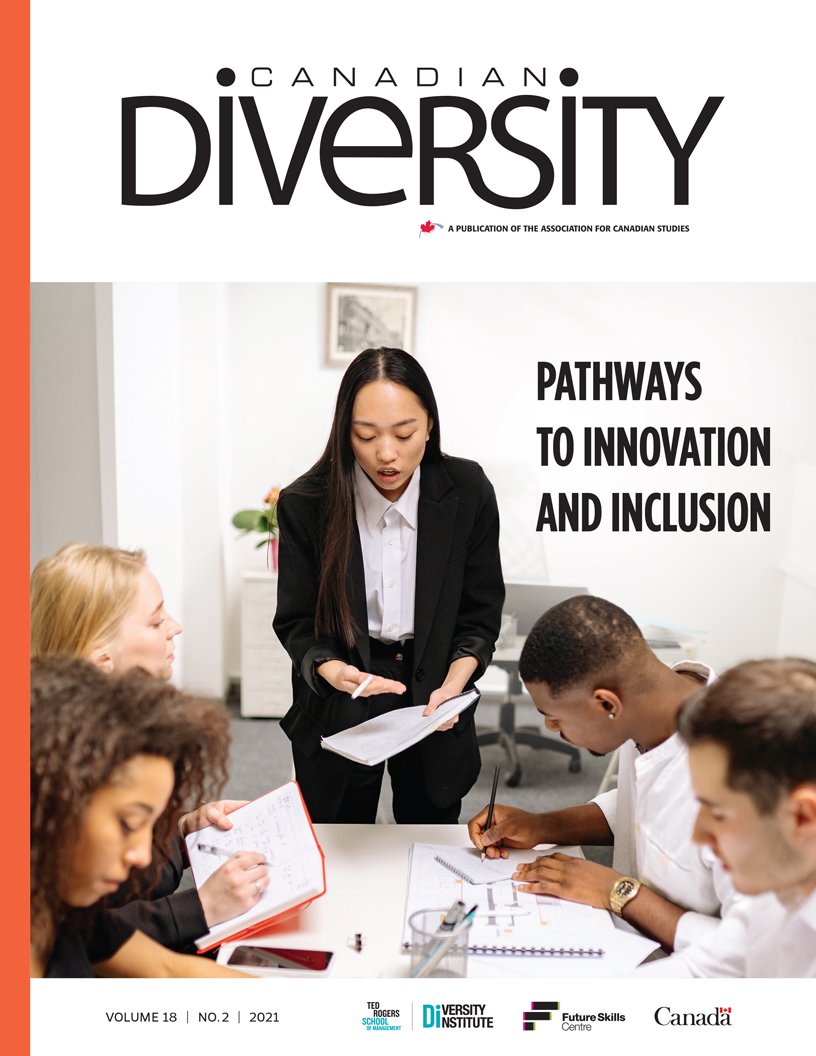
Canadian Diversity Special Issue: Pathways to Innovation and Inclusion
Researchers at DI collaborated with the Association for Canadian Studies on a special issue of Canadian Diversity. Informed by more than 20 workshops sponsored by the Future Skills Centre, the magazine examines critical issues related to skills and employment pathways for newcomers and racialized Canadians, particularly those most affected by the COVID-19 pandemic.
Published online in May 2022, it delves into innovative strategies for employment, education and training case studies, and partnerships and programs driving the skills ecosystem.

Readiness and Resilience: Mapping the Contours of the Indigenous Skills and Employment Ecosystem in Canada
To achieve an inclusive economy, deliberate effort must be made to ensure that historically marginalized groups, such as Indigenous peoples, have equal opportunities to grow and succeed as valued employees, company owners, entrepreneurs, and leaders of industry and broader society. This achievement must be linked to initiatives that enable Indigenous people to acquire skills through training, networking and mentorship opportunities.
This report from June 2022 analyzes the scope of the Indigenous employment landscape as part of a project examining the barriers and enablers facing Indigenous people in Canada’s employment ecosystem, led by the Canadian Council for Aboriginal Business (external link) .

Syrian Refugee Lived Experience Project (external link)
In December, DI hosted an event giving a sneak peek into a new report led by the Environics Institute for Survey Research on the lived experience of Syrian refugees who arrived in Canada in 2015 and 2016.
The report was the latest in a series of studies grounded in the voices of people who are traditionally sidelined. Drawing from interviews with 305 Syrian refugees, the findings aim to direct policy and settlement programming, build capacity for further research, and improve the public narrative of Syrian and other refugees in Canada.
The results will inform initiatives DI is leading to support Afghan and Ukrainian refugees. These programs are built on the success of Ryerson University's Lifeline Syria Challenge, which mobilized 2,000 people, raised $5 million and resettled more than 500 Syrian refugees.
Evidence-Based Workshops

Creating Trans-Inclusive Workplaces
Dr. Wendy Cukier, founder and academic director of DI, and Jonas Stark, bilingual facilitator at Egale, a leading organization for 2SLGBTQI people and issues, co-presented a workshop at the Excellence in Manufacturing Consortium in November about the challenges trans people face in the workplace and how businesses benefit from trans inclusion practices.
One startling fact discussed? More than one-half of transgender employees say they are not comfortable being out at work.
This makes clear the need for inclusion to be embedded at all levels of an organization through a comprehensive equity, diversity and inclusion strategy.

The Power Of Intention: Board Diversity Best Practices Realized
In September, DI partnered with Canada Western Bank (CWB) and the 30% Club Canada to delve into the processes CWB used to diversify their board, advice for other boards and companies looking to be more inclusive, and the power of intention when adding diverse Bboard representation.
“We looked around the table and we said, “We don’t know who we don’t know,” CWB board director Ian Reid explained. “We recognized that we had to look outside of our comfort and outside of our network to find people that looked like our target customers.”

The Road to an Inclusive Economic Recovery
The Honourable Dr. Jean Augustine, the first African-Canadian woman to be elected to the House of Commons, and Gary Anandasangaree, parliamentary secretary to the minister of justice and attorney general of Canada, joined Wendy Cukier for a virtual chat at the 2022 Future Skills Summit in February. On the agenda was the importance of inclusion in Canada’s recovery.
A main focus? Youth. “If we don’t invest in youth now, we are not going to see diversity in leadership 15 to 20 years down the road,” Cukier explained.
Inclusive Innovation & Entrepreneurship

Diversity Institute and Women Entrepreneurship Knowledge Hub Welcome New House of Commons Bill to Recognize Women Entrepreneurship Day
In November, Women’s Entrepreneurship Day moved one step closer to being formally established as a Canadian day of recognition. Rechie Valdez, Member of Parliament for Mississauga-Streetsville, introduced the bill, entitled An act to establish national women's entrepreneurship day. The Diversity Institute, which leads the Women Entrepreneurship Knowledge Hub (WEKH), celebrated this milestone as an important step to acknowledging the achievements of women entrepreneurs every year, while taking stock of progress to crush barriers to inclusion.

The State of Women’s Entrepreneurship in Canada 2022 (external link)
This year, the Women Entrepreneurship Knowledge Hub (external link) ’s flagship report delved into the impacts of the COVID-19 pandemic on women entrepreneurs, the profiles and experiences of diverse women entrepreneurs, and the enablers and barriers in the women entrepreneurship ecosystem at the societal, organizational and individual levels.

Advancing Indigenous Women Entrepreneurs: Convening Alberta’s Indigenous women entrepreneurs and the ecosystem that supports them (external link)
WEKH Indigenous hosted a sold-out celebration of Alberta’s Indigenous women entrepreneurship ecosystem in November and raised over $40,000 for the Gifting Circle Bursary for Indigenous Women in Entrepreneurship (external link) at Mount Royal University.

Inclusive Innovation and Entrepreneurship Network (IIE-NET)
This year, DI’s network of academic experts, industry and community leaders, and government and social innovators in the Inclusive Innovation and Entrepreneurship Network (IIE-Net) continued to advance inclusion for equity-deserving people through research and specialized programming, supported by the Social Sciences and Humanities Research Council (external link) .
Bringing together more than 50 researchers and 61 partners, the IIE-Net builds on the work of WEKH and the Future Skills Centre. It is exploring the barriers and enablers in innovation and entrepreneurship facing people with disabilities, racialized people including Black and Indigenous individuals, and those from the 2SLGBTQ+ community.
Future Skills
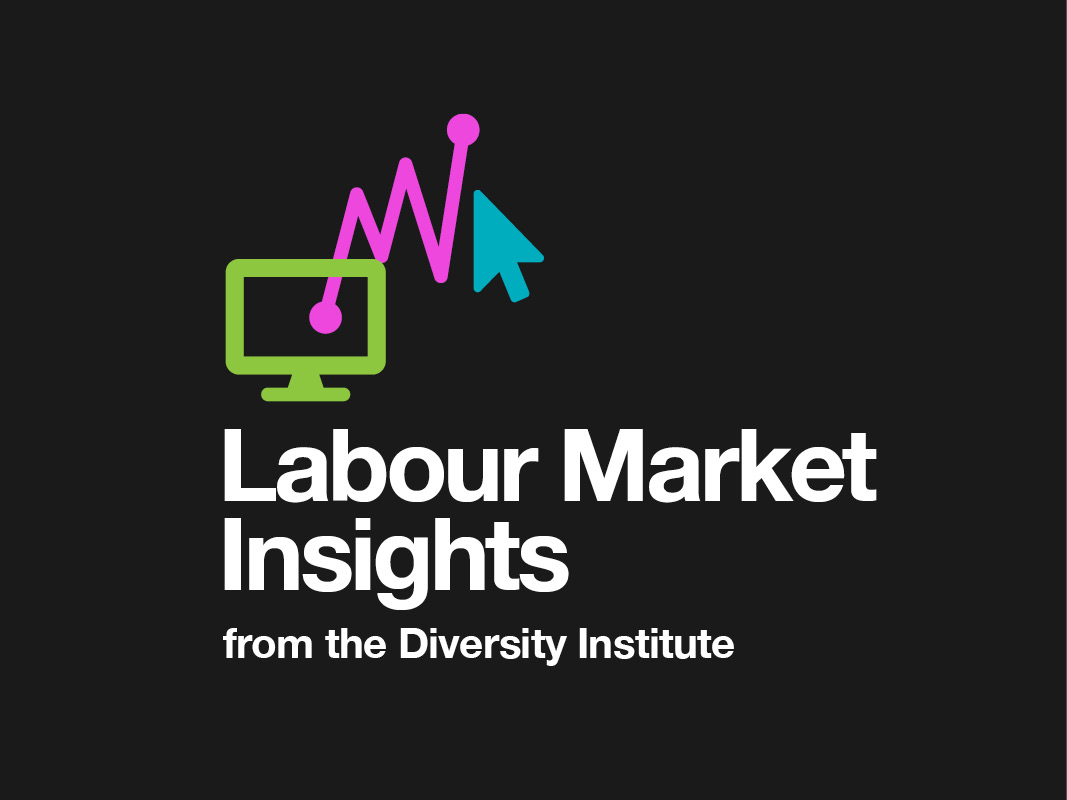
Labour Market Insights
Research published in the Labour Market Insights series covers a variety of topics relevant to the study of labour markets and are based on analyses of collated data from online job postings across Canada, as well as other traditional and innovative data sources.
This year we published research examining the demand for personal support workers, how labour market information can be used to make skills development more inclusive, and labour market insights on the cleantech sector.
Must-Read Material

Jobs and Skills in the Transition to a Net-Zero Economy
There is a growing consensus on the benefits of transitioning to a net-zero economy beyond controlling global temperature rises.
The business case for a decarbonized economy rests on the successful transition of workers from jobs expected to disappear to those that will emerge and grow. The questions that follow have to do with how these changing jobs across sectors will affect the demand for skills, and how policy-makers should respond by creating skills-focused policies that enable clean and resilient growth across a range of net-zero emissions futures.
To answer these questions, this report from May 2022 presents a foresight exercise that models the jobs and skills that would be required in a net-zero economy across a set of distinct futures.

The shift to remote work: How workers in Canada are adapting to working from home
The Survey on Employment and Skills has been tracking experiences with working from home since 2020. The latest wave of the survey, conducted in the spring of 2022, finds that these experiences have become more positive over the course of the pandemic. Most of those who have been working from home say they prefer this arrangement and want it to continue once the pandemic is over. And most of those who want to continue to work remotely prefer to do so on a regular basis, rather than occasionally.
This report is based on data from the fourth wave of the Survey on Employment and Skills and is based on a survey conducted by the Environics Institute for Survey Research (external link) , in partnership with DI and the Future Skills Centre (external link) .
Innovative Programming

ADaPT (Advanced Digital and Professional Training)
ADaPT started its year with its first-ever newcomer cohort. It will continue to scale this offering in 2023, while also piloting ADaPT for career-changers, designed to kick-start career change for mid-career workers from equity-deserving groups.
ADaPT continues to produce strong placement numbers, with 92% of participants placed in paid work this year. It has developed more than 89 new partnerships and continues to build on existing partnerships like that with the Ontario Chamber of Commerce (OCC).
ADaPT and the OCC will soon offer the Canada Digital Adoption Program, which provides funding and support to small and medium-sized enterprises and training opportunities for young Canadians

Lifeline Afghanistan (external link)
The Diversity Institute launched Lifeline Afghanistan just over a year ago to help Afghan newcomers fleeing the humanitarian crisis in Afghanistan.
Since then, Lifeline Afghanistan and its partners have raised more than $1 million and helped more than 100 Afghan newcomers.
Powered by Magnet (external link) , the Lifeline Afghanistan job portal (external link) was developed this year to help connect Afghan newcomers to jobs, as well as to wraparound supports and employer and jobseeker resources from Magnet and the Future Skills Centre.
Despite this progress, much remains to be done. Lifeline Afghanistan invites employers, community organizations, those interested in private sponsorship, and individual or corporate donors to reach out and learn more (external link) .
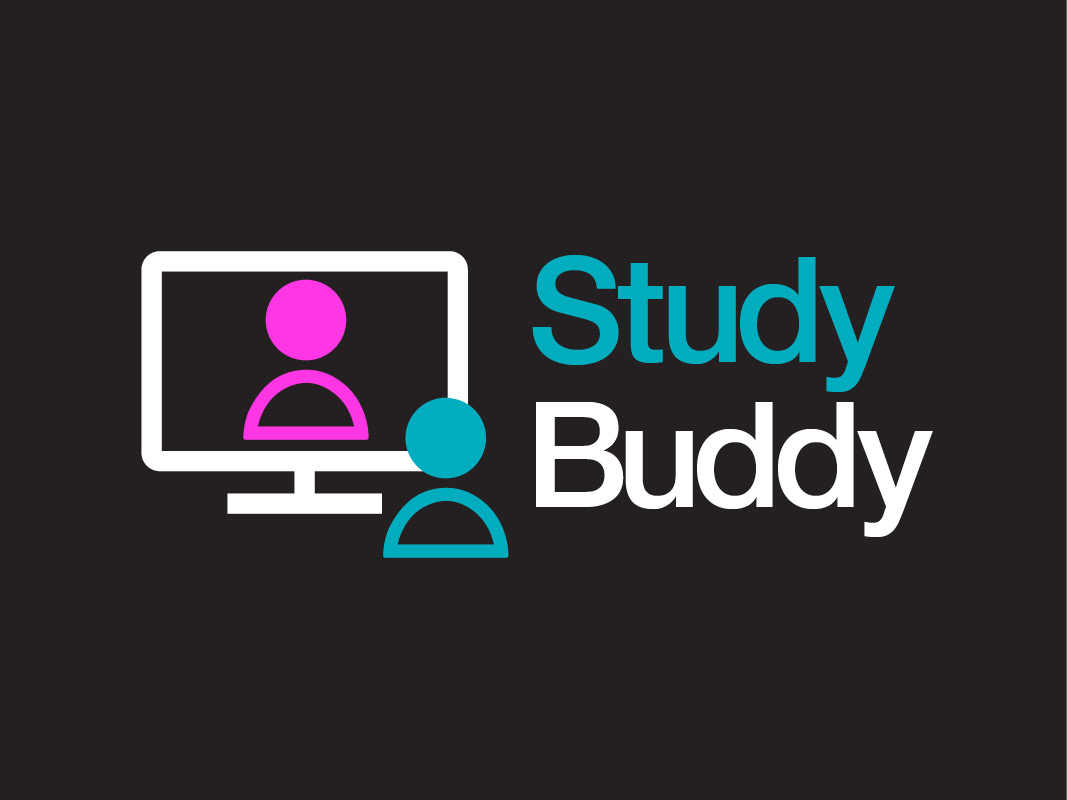
Study Buddy
Established in May 2020 in response to the learning disruptions wrought by the COVID-19 pandemic, the Study Buddy program continues to connect families from equity-deserving communities with online tutoring support while working to remove barriers to high-quality, individualized education for K-12 students in Ontario.
In 2022, the program continued to make a difference. To date, Study Buddy has provided 11,500+ hours of tutoring support to 400+ students and 300+ families with 350+ tutors.
